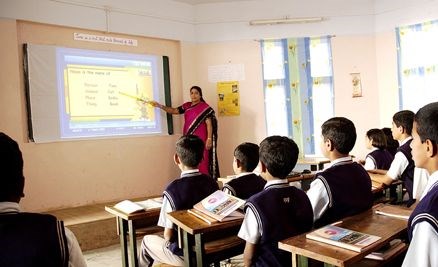
01-Jul-2025 , Updated on 7/1/2025 6:16:02 AM
Is India’s Education System Producing Employees, Not Innovators?
Rote Learning Stifles Creative Potential.
Excessive dependency on rote learning in India is evident in curbing crucial thinking and creativity problem solving which are quite fundamental to innovation. Such style of pedagogy places emphasis on simply reciting fixed answers rather than the promotion of questioning and the development of original thinking. As a result, students are skilled in and can pass examinations but fail to have the ability to synthesize information in a unique manner or to produce a unique solution. This specialism develops a workforce skillful at doing work within the confined structures - creating workers. But it does not cultivate the creative thinking that they need in order to become innovators who can establish the fundamentally new knowledge and technologies.
Exam Focus Undermines Critical Thinking.
The obsessive culture of examination in India is a direct enemy of critical thinking. The system gives focus on rote learning and formulaic answers under fixed syllabus to achieve as many marks as possible. This methodology does not involve analytical thinking, challenging assumptions, problem solving and thinking independently. Students learn to memorise and to reproduce the answers in the text and are seldom expected to organise a synthesis of what they have learnt, work on their own ideas or make creative uses of their knowledge. In such a way, the focus is moving out of the profound comprehension and intellectual inquisitiveness and on the exam performance exclusively, with education of people being prepared exclusively for foreseeable work, but not the creation of innovative abilities required to overcome intricate issues.
Industry Demands Outpace Curriculum Relevance.
The education system in India shows a high degree of mismatch with the current demands of the industry. It is a common phenomenon in which curricula are not up-to-date to support the development of theory and rote learning rather than skills that are needed in the modern world. This does not develop critical thinking, creativity and more importantly practical problem solving skills required in the current economy. As a result, graduates are also at a high likelihood of being proficient in performing the defined tasks. The focus on the examination scores and conformity of the system prevents the growth of initiative and original thinking. This means that you get a workforce that is ready to work on a regular basis and ready to be employed because their potential of making any real innovation as could be required in future is not there.
Research Culture Remains Largely Undeveloped.
The education system in India is poorly developed in terms of the research culture: it supplies employees rather than developers and innovators. The extensive use of rote learning and summative assessments that have an immense significance kill creativity and critical thinking. Governmental insufficient funding of research facilities and weak industry-academia partnerships and the lack of original research as a compulsory part of curricula form a major obstacle. This culture relates to learning and testing knowledge rather than coming up with new ones, solving new problems and intellectual risk-taking. Therefore, the system is useful in developing graduates in predetermined areas of work but not in producing independent thinking and producers of innovative breakthroughs. This is a research gap that can form the basis of systemic change.
Innovation Deficit Threatens National Progress.
The lack of innovation is a serious menace to the development of India. The main problem of the education system is that it is focused on production of its employees instead of producing innovators. A deeply embedded emphasis on rote learning, standardized college admissions and ability testing, and traditional vocational placement does, in fact, act to simultaneously repress critical thinking, creative problem solving, and intellectual risk-taking. The approach does not encourage the ability to come up with unique thoughts and innovations. As a result, the labor force does very well to perform set tasks that are prescribed to them but are hopelessly unable to reactive inventions and pioneering research. This inbuilt incapability of creating true innovation in the education system will directly choke the development of a country necessitating an overhaul of the curriculum and a paradigm of thinking.

Content Writer
Hi, I’m Meet Patel, a B.Com graduate and passionate content writer skilled in crafting engaging, impactful content for blogs, social media, and marketing.
Join Our Newsletter
Subscribe to our newsletter to receive emails about new views posts, releases and updates.
Copyright 2010 - 2026 MindStick Software Pvt. Ltd. All Rights Reserved Privacy Policy | Terms & Conditions | Cookie Policy